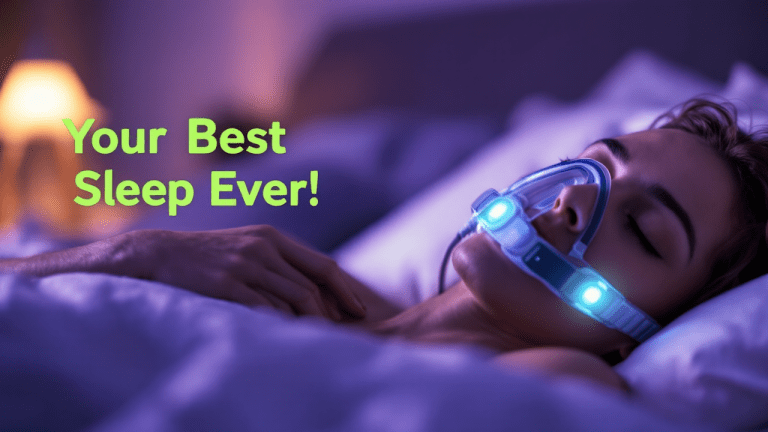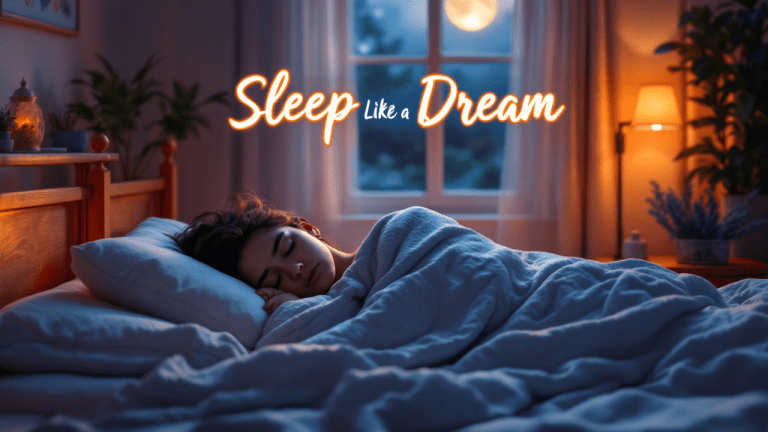Sleep psychology lies at the intersection of neuroscience, mental health, and human behavior, helping us understand why we sleep, how sleep affects our mind, and what happens when our sleep patterns are disturbed. In today’s fast-paced world, sleep problems are increasingly common, and so is the widespread interest in how psychology can help us improve both the quality and duration of rest.
In this comprehensive guide, we will delve into the fascinating field of
sleep psychology—from the science of sleep cycles to the connection between insomnia and anxiety, as well as evidence-based strategies to enhance sleep through psychological interventions.
What Is Sleep Psychology?
Sleep psychology is a specialty within psychology that examines the relationship between sleep and thought, emotional regulation, memory, and behavior. It covers:
- Sleep disorders such as insomnia, sleep apnea, narcolepsy, and parasomnias.
- Psychological impacts of sleep deprivation include mood swings, depression, and impaired decision-making.
- Interventions and therapies like Cognitive Behavioral Therapy for Insomnia (CBT-I).
- The bidirectional relationship between sleep and mental health, where poor sleep may cause psychological struggles, and psychological struggles may worsen sleep.
In simple terms, sleep psychology examines how the mind affects sleep and how sleep, in turn, impacts the mind.
Why Sleep Is Essential for Mental Health
Sleep isn’t just physical rest—it’s also mental restoration. During different sleep stages, the brain processes emotions, consolidates memories, and regulates neurotransmitters that control mood and emotional well-being. When our sleep is cut short or disrupted, we not only wake up tired physically but also emotionally unbalanced.
- Emotional processing: Research indicates that REM sleep (rapid eye movement sleep) plays a crucial role in regulating emotions and mitigating stress responses.
- Memory consolidation: The hippocampus communicates with the neocortex during sleep, enabling short-term memories to be converted into long-term memories.
- Mood regulation: Sleep influences serotonin and dopamine levels, which play critical roles in anxiety, depression, and motivation.
This is why chronic poor sleep has been linked to conditions like depression, anxiety, and even bipolar disorder. These connections underscore the psychological importance of the sleep stages we experience each night.
Stages of Sleep and Their Psychological Importance
Our sleep follows a predictable cycle of stages, each with unique contributions to mental health:
- Stage N1 (Light Sleep): Transition from wakefulness to sleep. During this stage, relaxation begins, but the brain remains semi-alert.
- Stage N2: A deeper stage of non-REM sleep where the body temperature drops, heart rate slows, and brain activity begins to quiet.
- Stage N3 (Deep Sleep/Slow-Wave Sleep): Essential for body repair and growth, but psychologically, this stage also supports detoxification and memory stabilization.
- REM Sleep: The most psychologically significant stage. Dreams occur here, aiding creativity, problem-solving, and emotional regulation.
A complete sleep cycle lasts around 90 minutes, and an average adult cycles through 4–6 times per night. Skipping these cycles, particularly deep or REM sleep, leaves a lasting impact on mood, mental sharpness, and resilience to stress. Given the importance of these cycles, it’s helpful to understand common sleep disorders that disrupt them.
Common Sleep Disorders in Psychology
- Insomnia: Difficulty falling or staying asleep, often linked to stress or anxiety.
- Sleep Apnea: Interrupted breathing during sleep, which can cause chronic fatigue and mood instability.
- Narcolepsy: Sudden sleep attacks during the day, disrupting work, relationships, and mental steadiness.
- Parasomnias: Abnormal behaviors during sleep, such as sleepwalking or night terrors, are often associated with trauma or high stress.
- Circadian Rhythm Disorders: Mismatches between sleep-wake cycles and the body’s natural clock are common among shift workers and young adults.
Each disorder highlights how delicate the balance is between mental functioning and sleep quality. Exploring what happens when sleep is lacking further reveals the vital role sleep plays in psychological health.
Sleep Deprivation and the Brain
Lack of sleep or chronic sleep debt has profound psychological consequences:
- Cognitive decline: Impaired focus, memory lapses, and slower processing speed.
- Emotional dysregulation: Increased irritability, heightened anxiety, and difficulty coping with stress.
- Risk-taking behavior: Sleep-deprived individuals tend to make impulsive or risky decisions.
- Hallucinations or paranoia: In extreme deprivation cases, the brain can create distortions of reality.
Psychology research shows that even losing 2 hours of sleep nightly for a week can impair thinking as much as a full night’s deprivation. Beyond the waking mind, what happens during dreams can also offer important clues about our mental state.
The Psychology of Dreams
Dreams are one of the most mysterious aspects of sleep psychology. While science has not fully defined their purpose, psychologists suggest dreams are important for:
- Emotional problem-solving.
- Practicing responses to threats or anxieties.
- Processing and consolidating memories.
- Tapping creative problem-solving networks in the brain.
Sigmund Freud viewed dreams as gateways to hidden desires, while modern neuroscience sees them as a byproduct of the emotional regulation functions of REM sleep. Either way, what we dream about can be a reflection of our psychological health.
Sleep and Anxiety: A Two-Way Street
Psychologists note that sleep and anxiety feed one another. Poor sleep increases anxiety levels, and high anxiety makes it more difficult to fall asleep. This vicious cycle creates chronic insomnia, making bedtime stressful rather than restful.
For example:
- Anxiety heightens physiological arousal (racing heart, tense muscles), preventing relaxation.
- Anticipatory stress before bedtime (e.g., “What if I can’t sleep again?”) creates performance anxiety about sleep itself.
- Sleep loss then worsens anxious thoughts the next day, leading to emotional instability.
Breaking this cycle often requires specific therapy, mindfulness practices, or CBT-I. Let’s examine Cognitive Behavioral Therapy for Insomnia in more detail to explore its effective solutions.
Cognitive Behavioral Therapy for Insomnia (CBT-I)
CBT-I is the gold-standard psychological treatment for insomnia. Unlike sleeping pills, which address symptoms, CBT-I targets the root causes of sleep disturbance.
It focuses on four main areas:
- Cognitive restructuring: Challenging anxious or negative thoughts about sleep.
- Sleep restriction therapy: Limiting time in bed to consolidate sleep efficiency.
- Stimulus control: Breaking unhelpful habits like scrolling on the phone in bed.
- Relaxation training: Using breathing, mindfulness, or progressive muscle relaxation.
Studies show CBT-I can improve sleep quality by 70–80% and reduce long-term relapse. Implementing these techniques is even more effective when paired with strong sleep hygiene habits.
Sleep Hygiene: Psychological Strategies for Better Rest
Psychologists often recommend behavioral adjustments, known as sleep hygiene, which create the right mindset and environment for sleep:
- Maintain a consistent sleep schedule, even on weekends.
- Limit caffeine, nicotine, and alcohol, especially in the evening.
- Use the bedroom only for sleep and intimacy (not work or TV).
- Keep the bedroom cool, dark, and quiet.
- Avoid screens for at least 1 hour before bed, as blue light suppresses melatonin.
- Develop a bedtime ritual, such as light reading or meditation, to signal to the brain that it’s time to sleep.
These simple habits are powerful because our psychology is conditioned by environmental cues.
Sleep Across Different Ages
Sleep psychology also looks at how sleep requirements and patterns shift across a lifespan:
- Children: Need 9–12 hours, crucial for brain development and emotional regulation.
- Teenagers: Biological clocks shift later, but societal routines often clash, creating chronic sleep debt.
- Adults Typically Require 7–9 hours, although stress, work, and family obligations often interfere with this amount.
- Elderly: Often experience changes in circadian rhythms, leading to lighter sleep and more awakenings.
Recognizing these natural changes helps set realistic expectations about sleep psychology across life stages. Beyond age, modern lifestyle factors increasingly shape our sleep experiences today.
Modern Lifestyle and the Sleep Crisis
Technology has created new psychological barriers to quality sleep:
- Blue light exposure delays melatonin production.
- Overstimulation from social media increases racing thoughts before bed.
- A high productivity culture glorifies minimal rest, thereby normalizing sleep deprivation.
In psychology, this is sometimes referred to as social jet lag—being chronically out of sync with our natural rhythms due to lifestyle pressures. With these challenges in mind, the field of sleep psychology continues to innovate solutions for the future.
The Future of Sleep Psychology
As the link between sleep and mental health becomes clearer, psychology is exploring modern approaches:
- Wearable trackers that measure biofeedback and sleep cycles.
- Digital CBT-I programs for accessible, widespread therapy.
- Personalized sleep medicine integrating genetics, circadian biology, and psychological assessments.
- Public health campaigns aim to redefine sleep as a non-negotiable aspect of overall well-being. The next decade of psychological research will likely make sleep care as fundamental to mental health treatment as nutrition and exercise. Ultimately, applying this expanding knowledge can help us all achieve better mental and emotional well-being through sleep. Exercise.
Final Thoughts
Sleep psychology demonstrates that rest is not just downtime—it is an active mental process shaping who we are. Healthy sleep is one of the strongest predictors of resilience, emotional stability, and sharp cognition. By integrating psychological strategies such as CBT-I, improved sleep hygiene, and mindfulness, we can unlock sleep’s full potential for mental well-being.







